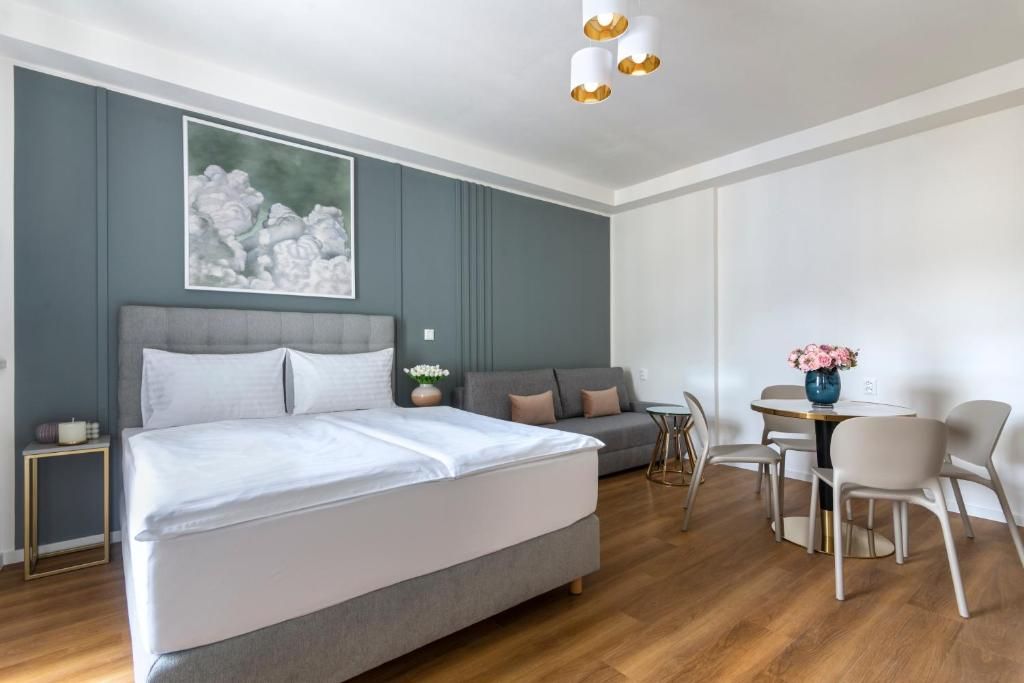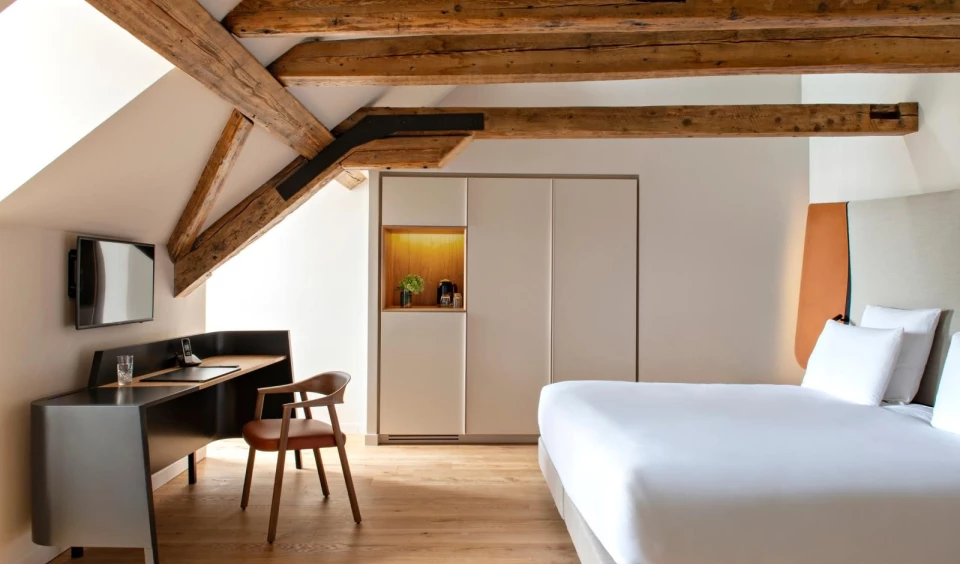How to Choose Furniture for Hotels and Guesthouses? A Guide
Selecting the right furniture for hotels and guesthouses is one of the most important challenges faced by owners and managers of accommodation facilities. Furniture in hotels plays a key role not only in building the aesthetics of the interiors but also in influencing guest comfort and the durability of the entire furnishings. In this article, we discuss what to consider when choosing furniture for hotels and guesthouses to ensure it is both functional and aesthetically pleasing.
What Furniture to Choose for Hotels and Guesthouses – 8 Factors
1. Durability and Quality of Materials
Hotel furniture is subject to intensive use, so it is crucial that it is made from durable and damage-resistant materials. When selecting hotel furniture, it is worth opting for solid materials such as wood, metal, or high-quality laminates. Oak, ash, or beech wood adds elegance to interiors and, with proper treatment, is very durable. For upholstered furniture, such as sofas or armchairs, it is important to use fabrics that are stain-resistant and easy to clean, ensuring an attractive appearance for a long time.
2. Ergonomics and Comfort
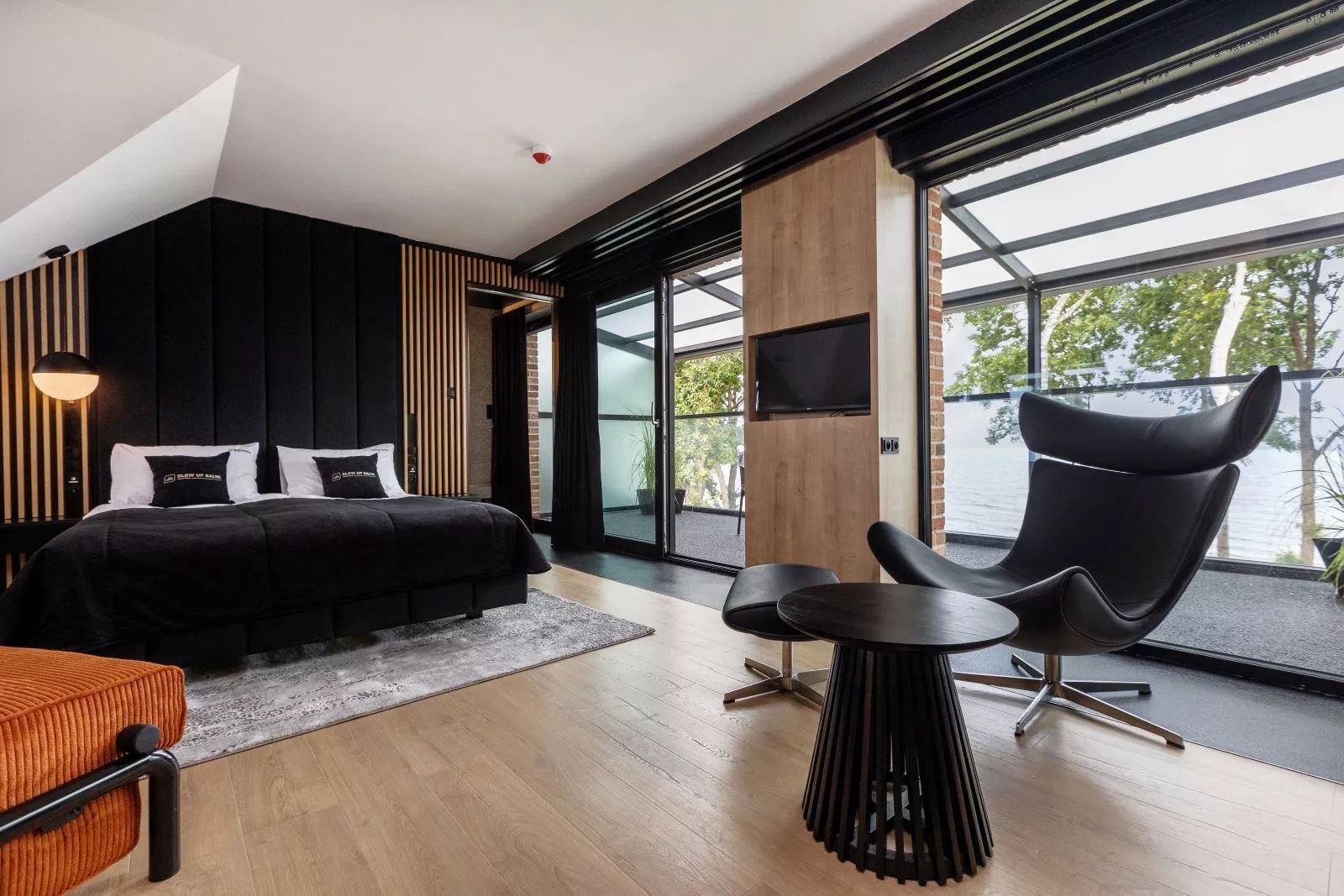
3. Aesthetics and Fit with Interior Style
Hotel interiors are often designed to evoke specific impressions in guests. Therefore, when choosing furniture for hotels and guesthouses, it is important to ensure that it stylistically matches the overall decor. Elegant, classic furniture will work well in more luxurious establishments, while minimalist, functional pieces will suit modern hotels. Hotel furniture is a key visual element that influences guests’ first impressions – the right choice can set the establishment apart from the competition.
4. Functionality and Adaptation to Space
Many hotel and guesthouse owners seek solutions that are both aesthetic and practical. Furniture for hotels and guesthouses must be well thought out in terms of the function it serves. For example, beds with storage compartments are ideal for smaller rooms, helping to save space. Wardrobes with mirrors can visually enlarge the space, and bedside tables with additional drawers provide guests with storage for small items. Multi-functionality of furniture is especially important in establishments with limited space, where every centimeter counts.
5. Ease of Maintenance and Cleaning
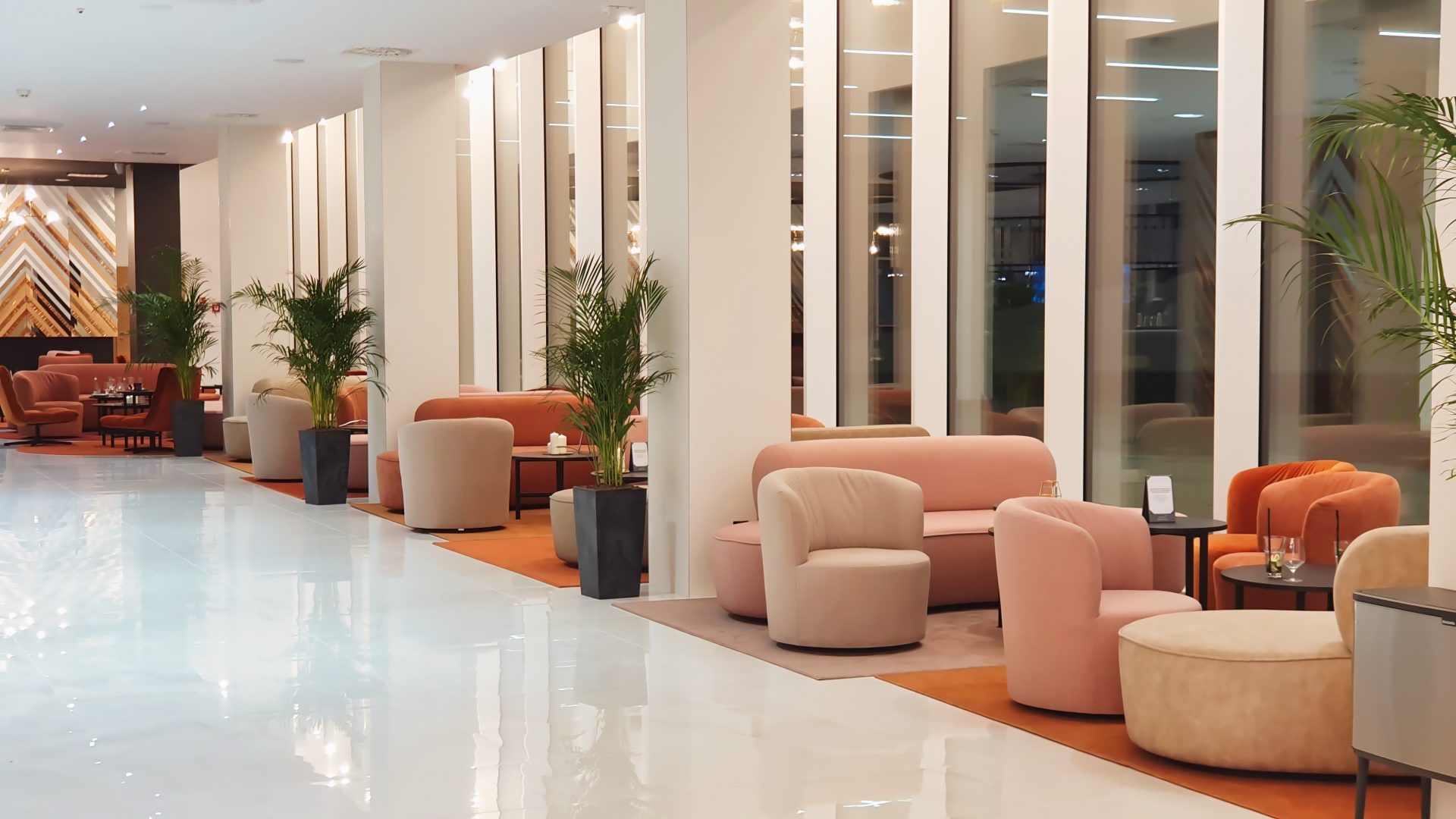
Hygiene in hotels is a priority, so when choosing furniture, it is important to consider how easy it is to clean and maintain. For sofas, armchairs, and chairs, it is worth opting for materials that are stain-resistant or can be easily wiped with a damp cloth. In high-traffic areas such as lobbies or hotel restaurants, furniture should be particularly resistant to stains and easy to clean, ensuring hygiene and longer-lasting furnishings.
6. Personalization and Unique Design
o stand out from the competition, it is worth considering custom-made furniture that can be tailored to the character and style of the establishment. High-quality hotel furniture can be personalized in terms of color, fabric patterns, or details, allowing for the creation of a unique interior. Nowadays, more and more companies offer the design and production of hotel furniture to special order, providing broad possibilities for arrangement and the introduction of individual accents. Such solutions not only emphasize the style of the establishment but also allow guests to enjoy thoughtful, original design.
7. Quality Certificates and Safety Standards
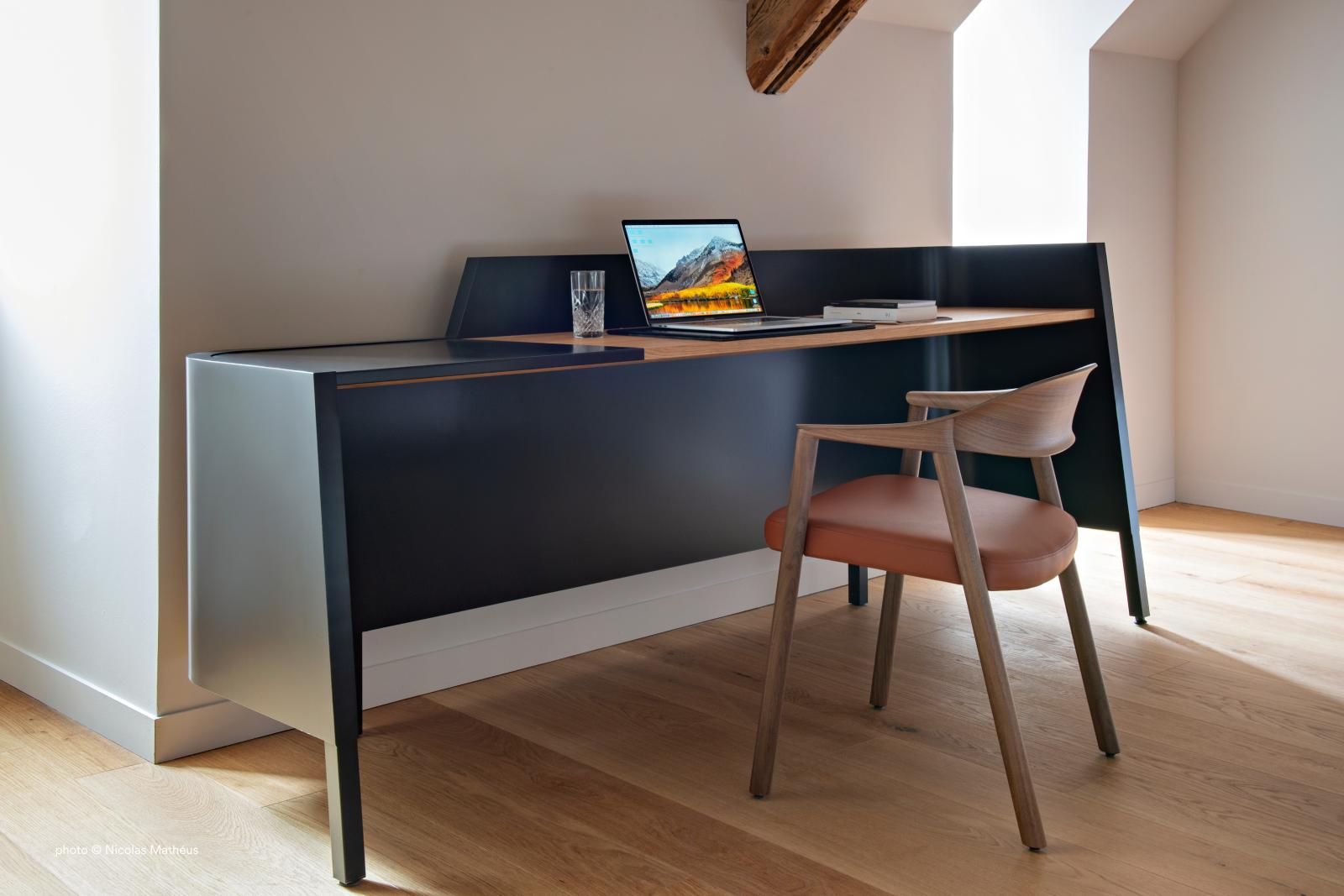
8. Costs and Value for Money
Investing in furniture for hotels and guesthouses is often a significant expense, so it is important to carefully analyze the value for money. Cheap furniture may prove costly in the long run, as it will require frequent repairs or replacement. It is worth considering offers from reputable manufacturers such as Demi Co., who specialize in hotel furniture and offer products that meet the requirements of the HoReCa sector. Purchasing higher-quality furniture can translate into longer lifespan and lower maintenance costs.
Summary
